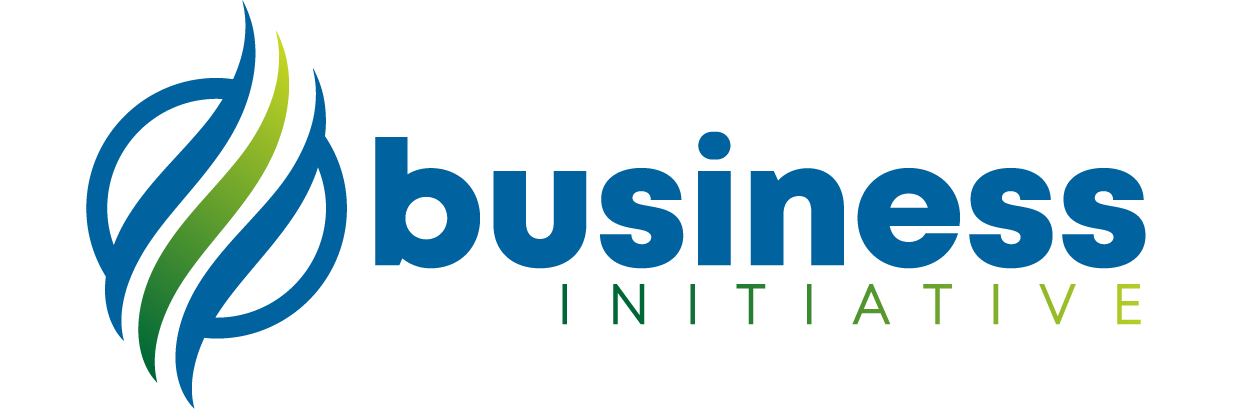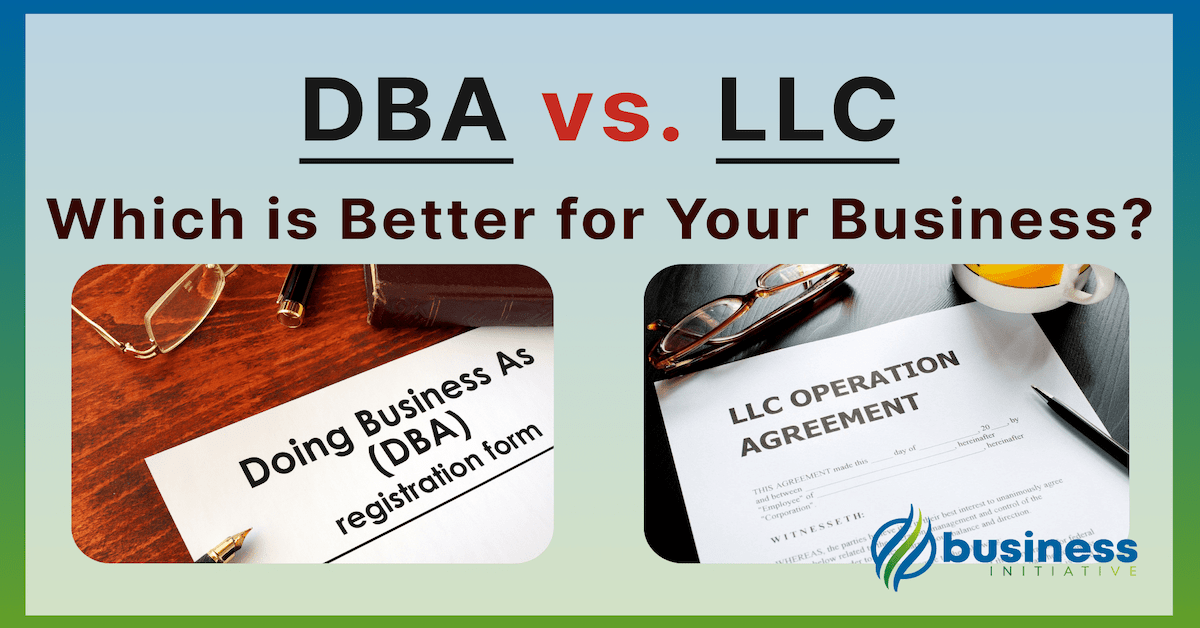What’s the difference between DBA and LLC?
When you compare the DBA versus LLC, you have to know DBAs are not LLCs. DBAs are different from LLCs for a few reasons.
DBA stands for Doing Business As vs LLC stands for Limited Liability Company (not Corporation, another common misconception).
 Key Takeaways
Key Takeaways
- A DBA lets a sole proprietor or partnership use a different name without forming a separate legal entity. An LLC provides limited liability protection and separates personal assets from the business.
- An LLC offers personal asset protection for its owners in case of business debts or lawsuits. A DBA does not provide any liability protection for the owner.
- An LLC can choose how it wants to be taxed, offering flexibility in taxation options. A DBA does not change the tax structure of the underlying business entity.
- Forming an LLC requires more paperwork and fees compared to registering a DBA. An LLC must maintain annual reports and comply with state regulations to remain in good standing.
- Establishing an LLC allows you to build business credit separate from your personal credit. A DBA does not grant these same advantages as it is not considered a separate legal entity.
To put it simply, they are similar in some aspects but most people make the mistake of thinking they are interchangeable.
For the most part, though, they are different.
Not to worry, it’s all going to make sense soon.
 Table of Contents
Table of Contents
DBAs are just names businesses operate under.
DBAs are not business entities at all.
They do not offer any personal protections from lawsuits or debt collectors.
LLCs, on the other hand, are business entities.
LLCs differentiate between business and personal.
This critical separation allows you to protect your personal property from being taken in the event you get sued or banks come after the money owed to them.
Don’t want to conduct business under either their legal name or your state-registered business name?
No problem!
You can easily apply for a “Doing Business As” (DBA) name.
A DBA is a made-up name corresponding to what the business does and the market it operates in.
There are some states which require you to file a DBA when registering your business in the first place.
DBAs are officially recognized, fictitious names that businesses operate under.
As a general rule, you can’t include terms like “LLC”, “Inc.”, or “Corporation” in your DBA when you officially file and register your DBA with your state.
For better clarity, DBAs are not to be confused with Trademarks.
The difference being DBAs do not secure your rights to your name outside of your state (or county, depending on your state’s rules).
Trademarks give you exclusive rights to a business name, slogan, logos, symbols, designs, etc.
The company name of your LLC or Corporation is protected on a state level, but not on a federal level.
If someone starts using the DBA name you chose, there’s nothing you can do anything about it.
If someone starts using your Trademark, you can take legal action and file a lawsuit.
If you want a business name, or anything similar, to be protected on a federal level, you have to file for a Trademark.
DBAs are especially popular for Sole Proprietors who want to operate their business under a name that isn’t their legal name.
Using your legal name is the default for Sole Proprietors.
A DBA is just an alternate name for the business.
DBAs aren’t exclusive to Sole Proprietorships.
➤ DISCOVER: Sole Proprietorships - The first step to Solopreneurship
You’re able to add a DBA to your LLC to operate a business under a different name while still maintaining the liability protection afforded to you by the LLC.
Acquiring a DBA helps you build a brand for your business and begin advertising your services and products under the name of your choosing.
This is much more professional than using your legal name or the name of your company.
This will help you appear more professional to your market and potential customers.
For sake of example, let’s say there’s a guy named “Joe Robinson” who wants to start up a local plumbing operation.
He could simply choose to operate his plumbing business using his legal name, “Joe Robinson”.
His customers would just have to refer to his business as, “Joe Robinson that plumber who lives down the road”.
Or, Joe could get an optimized DBA for his business and call it something along the lines of “Robinson’s Plumbing and Sewage”.
In this case, “Joe’s” a DBA is much more professional sounding and heightens how the market will perceive his business.
The choice is obvious if you want your business to be at its best, which I’m sure you do.
You’re generally going to be better off having a dignified business name instead of just going by your legal name.
Having a distinguished and professional-sounding name for your business will, at the very least, cause potential customers to view your services as something worth their while.
There’s nothing wrong with using a legal name if putting your legal name and face out there would be better off for the future success of your business.
The success of “Joe’s” endeavor is not dependent on him being personally recognized. Rather, it’s on how well he does his job.
By choosing a DBA matching what he does with what services his potential customers seek, “Joe” will be much better off.
You can use your DBA to list your business online (search engines, job sites, directories, etc.) to get your name out there.
You can even open up a business checking account under a registered DBA.
Not to mention DBAs are proven to have the potential to develop brand recognition within their markets.
Getting a DBA allows you to open up a business checking account at your bank.
Though, some banks do require you have a fictitious name certificate along with your certificate of DBA when opening the account.
Business bank accounts are a great way to ensure your business finances are kept separate from personal finances.
It’s a very good idea to get in the habit of differentiating the two.
Since your business will be operating under this DBA, your business will have to file its taxes under the same alias.
How these taxes are paid differs from business entity to business entity.
LLCs, Sole Proprietorships, and Corporations all file their taxes differently. It all depends on which entity you’re running.
The DBA registration process is relatively straightforward.
To register your DBA you have to contact your state’s county clerk office to file the correct documents and pay the registration fee.
The cost is max. $100 but mostly it’s less than $50.
There are select states which require new DBAs to list themselves in the local news to make things official and on public record.
This is all very worthwhile for the future success of your business.
You’ll be easier to recognize, better known, and having the option of a business bank account will make keeping your finances in order worlds easier.
A General Comparison Between DBAs vs LLCs
The price of acquiring a DBA is much cheaper than the cost of acquiring an LLC.
LLCs (Limited Liability Companies) offer personal liability protection, hence the name.
Unfortunately, DBAs do not offer any personal asset protection from lawsuits or debt collectors.
DBAs, as explained earlier, do not differentiate between business and personal.
If you get sued for some reason and your business can’t meet the demands of the suit, that person or entity is going to come after your personal property and assets.
Your personal property includes things like your investments, house(s), car(s), even personal savings. Nothing is off-limits.
LLCs separate between your business world and your personal world.
If you have an LLC and a problem arises, your personal property is kept separate.
The lawyers or banks will only come after your business and all it has, leaving your personal assets and all you have alone.
An advantage of an LLC over a DBA is LLCs have registered business names by the state, not by the county as is the case of DBAs.
Due to this, your LLC name cannot be taken by another company in your state.
Having a DBA does not prohibit anyone from using the same name you have chosen.
Your chosen DBA could potentially become trademarked by someone else causing you to have to get a new DBA.
You’re able to add a DBA to an existing LLC. This is literally the best of both worlds.
You’ll have all the personal protections the LLC offers since it separates business and personal.
And, by adding a DBA to your LLC, you can come up with a relevant business name for branding and advertising to align your company with your optimal market.
If you already have an applicable, market-specific name for your LLC, a DBA is not necessary.
DBA vs LLC Taxes
Single-Member LLCs are taxed in a process called Pass-Through Taxation.
This is because Single-Member LLCs are viewed as disregarded entities.
Whatever money you want to take from the company profits and make personal gets passed on to your Personal Tax Return.
As an LLC you get your agreed-upon salary along with dividends.
You pay regular Income Tax on the salary and Self-Employment Tax on the dividends.
The owner of a Sole Proprietorship with a DBA has no differentiation between business and personal.
In this case, all business profits are accounted for on your Personal Tax Return.
Sole Proprietors have to pay a Self-Employment Tax on what they bring in as well as the usual Income Tax.
As a Sole Proprietor, you yourself are the business.
Owners of Multi-Member LLCs have to first designate member portions for payment.
They determine how much each person gets paid from the profits taken out of the LLC.
A percentage of each member’s portion is set aside as a distribution.
This is kept separate from the salary of each member.
Every member of the LLC will pay the normal Income Tax on the salary percentage of their portion and self-employment tax on the dividend percentage of their portion.
Want to optimize the tax strategy of your business or expand ownership?
Check out tax benefits of S-Corps, C-Corps, Partnerships, and Corporations.
Choosing one entity over another all depends on your business goals.
These different business entities all have their own advantages and disadvantages with regards to the requirements on setting them up, operation, taxation, personal protection, and more.
Before making decisions, like which business entity you should operate under, it is best to speak with a financial advisor and have a plan of action.
DBAs VS Trademarks
Let’s get one thing clear, DBAs are not Trademarks.
Although both deal with business names, they have different goals and requirements.
DBAs are a lot simpler than Trademarks.
DBAs allow businesses to operate under an alias instead of a legal name or the name made when the business entity was formed.
When you have a DBA you don’t have any rights to the name you choose.
This means someone else can come along and open up a business using the same name as you in different counties or states altogether.
The registration process for a Trademark is much more complex and costly than that of a DBA.
Trademarks protect the goods and services of a company from infringement or destruction of reputation by a different company.
For instance, you would be able to sue another company using your Trademark for their benefit because you hold the exclusive rights to it.
In the case of a DBA, you can’t do anything if someone else starts using the same name as you since you do not hold any rights to it.
Words, phrases, designs, symbols, or any combination of them can be Trademarked.
This is important when you consider the fact that customers see, recognize, and remember the slogans and logos of companies.
It has been proven that customers associate meaning with the name or logo of a business.
Trademarking these becomes necessary when a company wants to preserve the way they are perceived by the markets.
Should You Use a DBA?
Before deciding on whether or not to get a DBA you should weigh the pros and cons of DBAs.
It all depends on your business model and your future plans of where you want it to go.
The goal is to make the search for and the use of your products or services as streamlined as possible for your customers.
DBAs are perfect for anyone operating a business under a name that is not the existing name of the company or a legal name.
Choosing the DBA wisely and having it correspond to both what you do and what your customer base is seeking will create many advertising opportunities.
If you own an LLC or a Corporation and you want to operate your business under a different name than the one on the LLC or Corporation documentation, you’d need to add a DBA to it through the state or county(ies) you’re operating in.
When the business is operating in different niches or markets unrelated to one another, a DBA would be helpful to target each respective audience.
The DBA in this case will allow you to conduct business under a different name without having to register a completely new LLC or Corporation.
This will save you quite a bit of time, money, and headache.
For Sole Proprietors who are in complete control of the business, the name of the business is your legal name by default.
This is because the owner of a Sole Proprietorship is the company, they are the business themselves.
It may not be optimal to operate your business under just your legal name.
Unless your name is something like “Michael Electrical Repair Jordan”, you’re probably going to want a DBA.
The DBA will give your business a brand you can market.
Your legal name simply doesn’t say anything about what the business does.
If you want your business to be more personal to get your name/face out there you can just operate under your legal name.
In this case, a DBA wouldn’t be necessary.
To have a unique, business-specific name you have to get a registered DBA.
If you want a brandable company with logos and a name that aligns your business with your customer base, a DBA is a great idea.
Having a DBA does not change the status of the business entity.
As a Sole Proprietor, you will remain a Sole Proprietor.
Same taxation and same (lack-of) liability protection.
Just with a more applicable, professional-sounding name.
In the case of LLCs and Corporations, you may want to get a DBA so that you can expand and grow your business.
Either making different branches or building new locations in other states where your original name is already in use.
Maybe you even want to make a DBA specific to the geographic region.
Just like with Sole Proprietorships, adding a DBA to an LLC or a Corporation doesn’t change how it is taxed, or all the protection it offers.
PROS
-
Simple and Inexpensive
States make the DBA registration process pretty straightforward and relatively cheap.
Most states require DBAs by law because they want to keep tabs on the business activity in the state and don’t want businesses operating under a name that’s not on record.
Clear, detailed instructions are found on your state or county’s official website.
To give you a general idea, most of the time all you gotta do is pick up a DBA certificate from your county clerk or county register’s office, fill it out, and pay filing fees when you submit it.
Then, boom, you’re official.
Some states even allow you to submit the documents online.
-
Increased Flexibility
With a DBA, growing and expanding your business’s operations becomes much easier.
In terms of expansion, creating a DBA allows you to open additional locations in other regions or states where your original name is being used by another company.
The solution is simple.
Just come up with a different name for your new branch and file for a DBA.
Regarding growing your business, you can get DBAs for multiple operations.
For example, a couple is running a Lighting business as a Partnership.
The co-owners might create two off-shoot operations with DBAs “Jack’s Lightbulbs” and “Jill’s Lamps”.
-
Better Privacy
Operating a Sole Proprietorship under your legal name means you’re bound to receive lots of junk mail/phone calls/emails.
You’re going to be an easy target for marketers and advertisers.
Avoiding all these calls, catalogs, and emails is easy when you keep your real name out of your DBA.
People are always trying to sell something, that’s why you started a business in the first place (and everyone else for that matter).
You’re going to be easy to track down if you’re doing business under your legal name.
If, however, you’re in a business where you want as much personal publicity as you can get, including your legal name in a DBA would be a good idea.
In fact, you might not even want a DBA since going by your legal name is the default for Sole Proprietorships.
-
Brand Recognition
With the right name, your business can branch out and become a “local” anywhere.
By tailoring your DBA to your location, potential customers searching for businesses that do what you do in their area will be able to find you quickly and with ease.
By including prominent words in your DBA, relative to the area you are located in, you will automatically stand out.
It’s a natural human tendency to seek what is familiar, even if it’s just words.
For example, adding words to your DBA like “coastal”, “rocky mountain”, “*nearest big city*”, or anything that resonates with people.
You will be able to brand the business as something more personal. Something closer to home.
-
Easily Added to your LLC
If you have a pre-existing LLC you can add a DBA to it.
You’re able to operate the LLC, or different branches of the LLC, under different names.
It is also a lot faster (and cheaper) to add DBAs to an LLC than it is to register a new LLC for every new thing you want to get into.
-
Audience Targeting
Instead of doing business under your legal name or a generic LLC title, you can create a specific DBA connecting you directly to your optimal market.
Matching DBAs with the customer base provides you with much better marketing opportunities.
A made-up company called “Oregan Organics LLC” specializing in health food might add a DBA along the lines of “Green Bark Dog Food” for their organic dog food operation.
-
Professionalism
Acquiring a DBA will alter how you are perceived by your market.
As in our earlier example, “Joe Robinson the plumber” doesn’t sound nearly as professional as “Robinson’s Plumbing and Sewage”.
It’s all about the brand and how it’s perceived by the market.
DBAs give you the ability to market and advertise your business on another level.
You’ll be able to better target the audience looking for the goods and services you work so hard to provide.
It becomes much easier to advertise effectively when you’re using a relevant DBA that pertains to what your perfect customer is looking for in a product or service.
-
Business Bank Account
When you receive your Certificate of DBA you can open a business checking account at your local bank.
This is great because you’ll be able to get into the habit of separating your finances between your business and your personal life.
A few banks have an additional requirement to complete a fictitious name form.
CONS
-
No Liability Protection
DBAs don’t differentiate between your business and your personal property and assets.
Like we just said, DBAs are names, not businesses.
Having a DBA doesn’t mean your personal belongings are protected from lawsuits or banks.
If you want to protect your personal belongings like investments, savings, houses, cars, real estate, you should opt for a business entities which provides liability protection.
LLCs protect these things by separating them from your business in the event you catch a lawsuit or debt collectors come after what they’re owed.
Registered business entities (including LLCs) offer personal liability protection whereas a DBA does not provide any of these protective measures.
If the “you know what” hits the fan and you find yourself under a lawsuit or find creditors knocking on your door, they will only come after your business and everything connected to it.
Entities like these separate business from personal. DBAs, on the other hand, are not business entities, they are just business names.
You don’t get personal asset protection if you operate solely under a DBA.
You’d just be acting like a Sole Proprietor whose personal things are not protected from legal disputes/creditors.
It should be pretty clear that your business and personal life are better off if kept separate.
This is why opening a business bank account with a DBA is good practice for when you eventually decide to move operations under an LLC.
-
No Tax Benefits
DBAs are not businesses, rather DBAs are merely names businesses operate under.
There are no tax benefits for DBAs because of this.
DBAs can’t even have the names of business entities like “LLC” or “Corporation” in the title.
Unfortunately, the name you choose for your DBA isn’t going to give you any leeway from the IRS.
It’s simply just a name.
In the case you add a DBA to an existing LLC (which does provide tax benefits), it won’t change anything about the taxation.
You will still be filing your taxes in the same way you were filing them for your LLC before you added the DBA.
Adding a DBA doesn’t change the tax status of your LLC.
To learn more about the details on how your business should be taxed, speak with a tax advisor.
-
No Naming Rights
Getting a DBA won’t give you any exclusive rights to the name you choose.
As was mentioned above, DBAs are different from trademarks.
DBAs just allow you to operate under a specific name but that doesn’t prevent anyone else from using the same name.
You could get an official trademark, which does secure your exclusive right to the name, but this is a longer, more expensive process than getting a DBA.
You might want to first establish your business as a DBA and then secure the trademark status after your business is alive and growing.
Unfortunately, another company could start using your DBA name and register it in an LLC or Corporation or even Trademark it themselves.
This would void your original DBA and you would have to go through the process of creating a new one.
You can’t even take legal action if someone else starts using your chosen name.
This still applies if you’ve been using your DBA to conduct business for a while.
If you want to secure and protect the perfect name you chose, you are better off getting a Trademark.
With a Trademark, you can take legal action if someone is doing business using your name, symbols, logos, slogans, etc. You can’t do that with a DBA.
-
Annual Maintenance and Upkeep
If you are operating in multiple counties within the same state, you may be required to initially file a DBA in each county you are operating in.
This all depends on the state you’re doing business in.
It is also important to note that you will have to renew your DBA every few years.
If you are operating in many counties and have DBAs for each, this can quickly become a monotonous task since you’ll have to re-register in every county you’re running the business in.
How to File a DBA?
So, you’ve decided to get a DBA.
The following is a general list of requirements for DBAs and the process of filing the necessary information.
Please note: This list is not specific to any one county or state.
Check with your county clerk or registrar’s office first to make sure you have all materials and file them correctly.
➤ Need personalized assistance? Book a FREE Consultation Today!
First things first, you have to make sure nobody else is using your name where you are doing business.
Depending on your state this may only be in the county you are operating in or it could apply to the entire state.
All you have to check for is the name availability where you are and claim it.
The earlier you secure a DBA for your company the better.
Even if the name you are thinking of is available right now, there is no promise it will be available tomorrow, or whenever you “get around to it”.
Take Initiative.
Make some moves.
But make sure you also speak with a financial advisor or lawyer beforehand.
After you pick up or download it, you have to fill out the DBA application.
You’re going to need your legal name (easy), the date, the DBA you want, and the address of the business.
If the address is somewhere other than the “Headquarters” of your business, you’ll need to send the documents to the government offices where HQ is, along with where your new location(s) are.
The DBA filing fees are relatively inexpensive.
The highest fees are around $100 but are normally less than $50.
You can file the documentation on your own or through a filing service online.
Either way works.
Going through a filing service will cost more because you will be paying them to do the work for you which will make it easier.
Doing it on your own will take more effort but you won’t have to pay more than the state or county filing fees.
Whichever way you decide to file, it is always a good idea to speak with a lawyer beforehand to make sure your ducks are in a row.
A few states have the additional requirement of publishing your DBA information in the local newspaper so that it be officially on public record.
Doing this gives “them” proof of your identity.
When this is the case you have to publish in one or more newspapers within four weeks of receiving your verified DBA.
After all this, your DBA is on public record.
Woohoo!
For the most part, this is all that must be done to secure your DBA.
It is important that you still look into your specific state and county requirements either online or in-person to be certain.
You can now conduct business under your new DBA.
In Summary…
The DBA acronym stands for “Doing Business As”.
DBAs allow businesses to operate under a different business name than was registered, in the case of an LLC, or different from your legal name, in the case of a Sole Proprietorship.
Anyone altering the name of their business has to get a DBA.
But, be warned, this doesn’t entitle you to any exclusive naming rights.
➤ MORE: See how the pros and cons of LLCs compare to Sole Proprietorships
DBAs are relatively easy to acquire, and cheap too.
DBAs are a great tool to build a marketable brand for your company, increase your personal privacy, and expand your operations.
You’ll also be able to open a business checking account and cultivate a professional appearance.
If you have an existing business entity, such as a Corporation or LLC, adding a DBA gives you the ability to grow your company more effectively.
DBAs can allow your LLC or Corporation to operate different businesses under a single entity.
The only real requirement to add a DBA is for owners of the new branch to be identical to those of the original entity for tax purposes.
Adding DBAs to an existing business entity doesn’t change its taxation process or the protections it offers.
There aren’t tax breaks associated with DBAs on Sole Proprietorships.
All it does is add opportunities for new lines of service/products.
It’s much easier to add a DBA than it is to register a new LLC for any new operations or branches.
Remember, DBAs are names, not business entities.
The biggest reason to get a DBA is to do business under a more relevant and applicable business name.
Your legal name or LLC/Corp name may not have anything to do with the products or services you are providing.
When your DBA is relevant to the services/products you provide and to what your customers are searching for, your chances of success increase dramatically.
DBAs do not distinguish between personal property and business property.
They do not protect your personal belongings from lawsuits or banks.
To keep your DBA long-term, you’re required to renew it every few years.
Depending on which state you live in this could mean you have to renew it in every county you are operating in.
Operating multiple DBA in different counties or states means this can quickly turn into a tedious process.
All in all, DBAs create marketing and growth opportunities but offer no real protection to those who have them.
Want to find out more about starting, operating and growing your own business?


